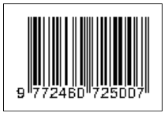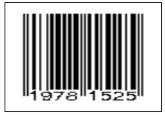Gaussian Blur Filter Effect Analysis on Facial Detection Accuracy Using Viola Jones Method
Saryanto Saryanto(1*), Widyastuti Andriyani(2)
(1) Master of Information Technology, FTI UTDI, Yogyakarta
(2) Master of Information Technology, FTI UTDI, Yogyakarta
(*) Corresponding Author
Abstract
Human face detection is one of the most studied topics in computer vision. The purpose of facial detection is to find out whether or not a face is present in an image. Blur can be caused by many things, such as motion that occurs when the camera takes a picture or the use of a camera that is not focused when taking a picture. For facial recognition, blur becomes difficult to get information about an object, get a description about it, or identify a face in the image. The more blur a picture, the more difficult it is to identify it. This research applies the Viola-Jones relative method for facial detection with a high degree of accuracy and fast computation. This study analyzed the influence of a gaussian blur filter by calculating how much radius an object has been given a gausian blur filter so that it can no longer be identified as an object, and also looking for the minimum PSNR value that is still acceptable in the object detection process. The minimum PSNR value for the image is 16.6 dB, and the minimum PSR value before the face can no longer be detected is 17.84 dB.
Keywords
Full Text:
PDFReferences
H. , Effendi, “Restorasi Citra Kabur (Blur) Menggunakan Algoritma Wiener,Jurnal No.32 Vol.1 Thn.XVI November 2009 ISSN: 0854-847, 1, 32, 7–13.,” 2009. [2] H. , 2018 Sajati, “Analisis Kualitas Perbaikan Citra Menggunakan Metode Median Filter Dengan Penyeleksian Nilai Pixel,” Jurnal Ilmiah Angkasa Vol. 10, No. 1, PISSN 2085-9503, E-ISSN 2581-1355 . [3] Z. Wang, L. Lu, and A. C. Bovik, “Foveation Scalable Video Coding with Automatic Fixation Selection,” 2003. [4] G.I.W Tamtama, “Perbandingan dan Analisis Untuk Algoritma Deteksi Tepi pada jaringan Saraf Tiruan,” CESS (Journal of Computer Engineering Systemand Science)p-ISSN:2502-7131Vol. 6No. 1Januar 2021. [1] H. , Effendi, “Restorasi Citra Kabur (Blur) Menggunakan Algoritma Wiener,Jurnal No.32 Vol.1 Thn.XVI November 2009 ISSN: 0854-847, 1, 32, 7–13.,” 2009. [2] H. , 2018 Sajati, “Analisis Kualitas Perbaikan Citra Menggunakan Metode Median Filter Dengan Penyeleksian Nilai Pixel,” Jurnal Ilmiah Angkasa Vol. 10, No. 1, PISSN 2085-9503, E-ISSN 2581-1355 . [3] Z. Wang, L. Lu, and A. C. Bovik, “Foveation Scalable Video Coding with Automatic Fixation Selection,” 2003. [4] G.I.W Tamtama, “Perbandingan dan Analisis Untuk Algoritma Deteksi Tepi pada jaringan Saraf Tiruan,” CESS (Journal of Computer Engineering Systemand Science)p-ISSN:2502-7131Vol. 6No. 1Januar 2021. [5] M. Roopaei, M. K. Eghbal, M. Shadaram, and S. Agaian, “Noise-Free rule-Based fuzzy image enhancement,” in IS and T International Symposium on Electronic Imaging Science and Technology, Society for Imaging Science and Technology, 2016. doi: 10.2352/ISSN.2470-1173.2016.13.IQSP-225. [6] A. V Abraham and P. Student, “FR IQA Classification and Evaluation,” 2007. [Online]. Available: www.ijirset.com [7] P. Purwanto, B. Dirgantoro Ir, and A. S. Nugroho Jati, “Implementasi Face Identification Dan Face Recognition Pada Kamera Pengawas Sebagai Pendeteksi Bahaya. Universitas Telkom.” [8] P. Viola and M. Jones, “Rapid object detection using a boosted cascade of simple features,” in Proceedings of the IEEE Computer Society Conference on Computer Vision and Pattern Recognition, 2001. doi: 10.1109/cvpr.2001.990517. [9] S. K. Pavani, D. Delgado, and A. F. Frangi, “Haar-like features with optimally weighted rectangles for rapid object detection,” Pattern Recognit, vol. 43, no. 1, pp. 160–172, Jan. 2010, doi: 10.1016/j.patcog.2009.05.011. [10] A. 2017 Kusumaningrum, “Pengaruh Jumlah File Training Terhadap Akurasi Pendeteksian Obyek Pada Metode Viola Jones,” 2017. [11] G. Badshah, S. C. Liew, J. M. Zain, and M. Ali, “Watermark Compression in Medical Image Watermarking Using Lempel-Ziv-Welch (LZW) Lossless Compression Technique,” J Digit Imaging, vol. 29, no. 2, pp. 216–225, Apr. 2016, doi: 10.1007/s10278-015-9822-4. [12] M. Khalid, I. Rahmani, N. Pal, K. Arora, and M. T. Scholar, “Clustering of Image Data Using K-Means and Fuzzy K-Means,” 2014. [Online]. Available: www.ijacsa.thesai.org
Article Metrics
Refbacks
- There are currently no refbacks.
Copyright (c) 2024 IJCCS (Indonesian Journal of Computing and Cybernetics Systems)

This work is licensed under a Creative Commons Attribution-ShareAlike 4.0 International License.
View My Stats1







